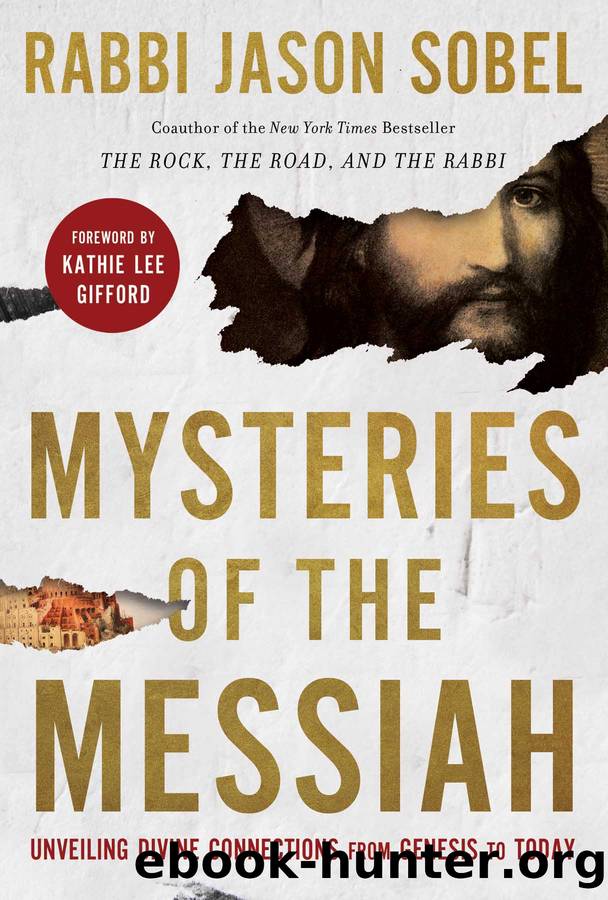Mysteries of the Messiah by Rabbi Jason Sobel

Author:Rabbi Jason Sobel
Language: eng
Format: epub
Publisher: Thomas Nelson
Published: 2021-02-02T00:00:00+00:00
THE TEN PLAGUES
In Egyptian culture, pharaohs were considered to be part of the cosmological order. According to Egyptian mythology, the greatest spiritual battle was the one that took place between order and chaos. Life and death, sunrise and sunset, and the yearly flooding of the Nile, which made Egypt fertile, were all part of the cosmic rhythm that kept creation from devolving into chaos. Various gods maintained and protected these cycles.
While the gods kept order in the cosmic realm, Pharaoh helped to keep order in the earthly realm. All ten plagues were meant to discredit the false gods of Egypt and Pharaohâs fallacious claim to govern creation as a semi-god. The plagues brought chaos out of order and exposed Pharaoh and the gods of Egypt as powerless before the Lord, the true Creator of heaven and earth.
The ten plagues are also referred to in the Bible as âsigns.â1 They were meant to convince all Egypt that the God of Israel existed, that He had a special covenantal relationship with the children of Israel, and that He was the Creator and King of all. Thus, the ten signs were not primarily punitive but redemptive. They were intended to elicit faith among the Hebrews as well as in the hearts of Egyptians so that they would repent and believe in the Lord. The ten signs/plagues are (1) blood, (2) frogs, (3) gnats, (4) flies, (5) death of livestock, (6) boils, (7) hail, (8) locusts, (9) darkness, and (10) death of the firstborn.
The Structure of the Ten Signs
The ten plagues were broken into three sets that demonstrated three spiritual truths to Pharaoh: (1) the Lord exists; (2) His control extends over all creation, from the greatest to the least; and (3) He is all-powerful. The plagues were not random but divinely designed to reflect the character of God as âcompassionate and gracious . . . slow to angerâ (Ex. 34:6; see also Ps. 145:8). The plagues first affected the environment, then material possessions, and ultimately led to increasing personal harm, culminating in the death of the firstborn when Pharaoh refused to repent. God gave ten opportunities for the Egyptians to have a change of heart, but they refused.
Did God Harden Pharaohâs Heart?
Can we honestly say that the Lord was merciful to Pharaoh and the Egyptians, since the Scripture says, âThe LORD hardened Pharaohâs heartâ (Ex. 9:12 NIV)? Pharaoh chose to harden his own heart, after being warned by the Lord (Ex. 7:13, 22; 8:11, 15; 9:34, 35), before God caused Pharaohâs heart to become even more hardened (Ex. 9:12; 10:1, 20, 27; 11:10; 14:4, 8). When God hardened Pharaohâs heart, He was merely strengthening Pharaoh in the way he had decided to goâhe would not repent and let the children of Israel go free.
The Lord desires that the wicked repent and not die: âI have no pleasure in the death of the wicked, but that the wicked turn from his way and liveâ (Ezek. 33:11 NKJV). God, therefore, did not harden Pharaohâs heart
Download
This site does not store any files on its server. We only index and link to content provided by other sites. Please contact the content providers to delete copyright contents if any and email us, we'll remove relevant links or contents immediately.
| New Testament | Old Testament |
| Popes & the Vatican | Saints |
MOSES THE EGYPTIAN by Jan Assmann(2412)
Jesus by Paul Johnson(2354)
Anthology by T J(2210)
The Plantagenets by Dan Jones(2086)
Jesus of Nazareth by Joseph Ratzinger(1811)
By Design by J.A. Armstrong(1540)
The Courage to Be Happy by Ichiro Kishimi & Fumitake Koga(1413)
Saints for All Occasions by J. Courtney Sullivan(1376)
1916 in 1966 by Mary E. Daly(1283)
Who's Who in the Age of Jesus by Geza Vermes(1236)
Abraham by James Reapsome(1234)
Our Revolution by Bernie Sanders(1225)
Abraham by David Rosenberg(1209)
Global Crisis by Parker Geoffrey(1158)
Crusade + Other Stories (Getting Started) by unknow(1140)
Photographing Families by Unknown(1134)
Stars by Sophia Bennett(1120)
The Hare with Amber Eyes by Edmund de Waal(1119)
Jesus: The Human Face of God (Icons) by Jay Parini(1097)
